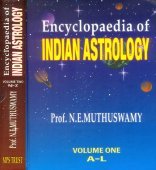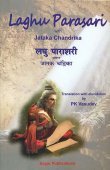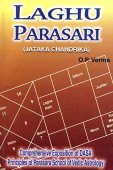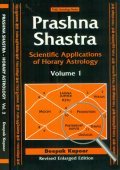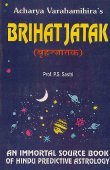Astrology: 1 definition
Introduction:
Astrology means something in Hinduism, Sanskrit. If you want to know the exact meaning, history, etymology or English translation of this term then check out the descriptions on this page. Add your comment or reference to a book if you want to contribute to this summary article.
Images (photo gallery)
In Hinduism
Purana and Itihasa (epic history)
Source: Shodhganga: Elements of Art and Architecture in the Trtiyakhanda of the VisnudharmottarapuranaAstrology refers to one of the topics dealt with in the Puranic literature: a category of ancient Sanskrit texts which gives a huge contribution in the development of Indian literature.—The Vishnudharmottara Purana contains different aspects of knowledge. Along with the narratives, this work bears immense information in various fields of study. The first khanda of the Vishnudharmottara Purana consists of 269 adhyayas. The first khanda contains the discussion about various subject matters such as Geographical account, Astronomy, Astrology, Religion, Politics, Chronography and Genealogies of kings and sages and their stories.

The Purana (पुराण, purāṇas) refers to Sanskrit literature preserving ancient India’s vast cultural history, including historical legends, religious ceremonies, various arts and sciences. The eighteen mahapuranas total over 400,000 shlokas (metrical couplets) and date to at least several centuries BCE.
See also (Relevant definitions)
Full-text (+1175): Jyotisha, Hora, Samayavidya, Devaprashna, Antardasha, Daivaprashna, Phalajyotisha, Mrityupancaka, Daivacinta, Shliku, Jyotihshastra, Mauhurtika, Grahagati, Jyotis, Taravi, Budha, Nakshatravidya, Muthaha, Munthaha, Ikkavala.
Relevant text
Search found 107 books and stories containing Astrology; (plurals include: Astrologies). You can also click to the full overview containing English textual excerpts. Below are direct links for the most relevant articles:
Significance of the Moon in Ancient Civilizations (by Radhakrishnan. P)
13. Historicity of Astrology in Medieval Age < [Chapter 3 - History of Civilizations and Moon]
2. Difference between Modern and Traditional Astrology < [Chapter 8 - Inconsistancy between Astrology and Science]
Astrology and Modern Science < [April – June, 1994]
Musical Compositions of Muthuswami Dikshitar on Planets < [April – June, 1982]
The Prediction < [July 1960]
Atharvaveda and Charaka Samhita (by Laxmi Maji)
Varāhamihira (Āyurveda scholar) < [Chapter 1 - Introduction]
Introduction to the Vedas < [Chapter 1 - Introduction]
Āyurveda and the Vedas < [Chapter 1 - Introduction]
Manusmriti with the Commentary of Medhatithi (by Ganganatha Jha)
Verse 6.50 < [Section VI - Procedure of going forth as a Wandering Mendicant]
Verse 3.162 < [Section VIII - Śrāddhas]
Verse 11.70 < [Section VI - Offences: their Classification]
Expiatory Rites in Keralite Tantra (by T. S. Syamkumar)
9.2. Devapraśna and Impact of Astrology in Tantric Expiatory Rites < [Chapter 4 - Socio-Cultural aspects of Expiatory Rites]
9. Socio-Cultural Aspects of Expiatory Rites in Later Period < [Chapter 4 - Socio-Cultural aspects of Expiatory Rites]
1. Tantra and Kerala Brahmins < [Chapter 4 - Socio-Cultural aspects of Expiatory Rites]
Karmic Astrology—a Study (by Sunita Anant Chavan)
Part 4 - Methodology of the study < [Chapter 1 - Introduction]
Part 5.2 - Jyotiḥśāstra in the Varāha Period < [Chapter 3 - Development of Jyotiḥśāstra and Karman in the Literature]
Jīva-Centricity < [Chapter 5 - Conclusions]
Related products
(+7 more products available)



